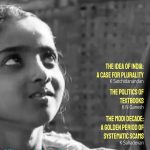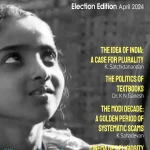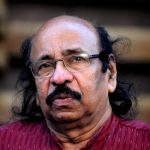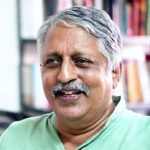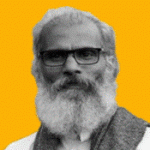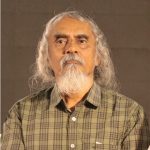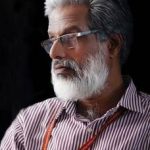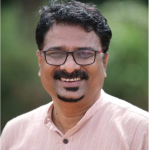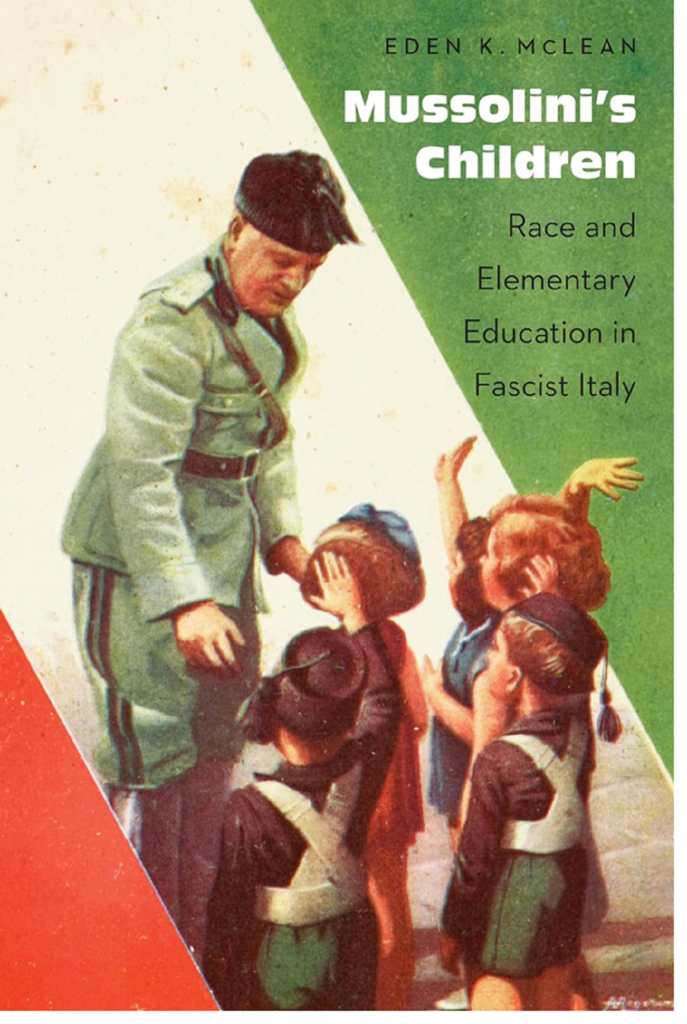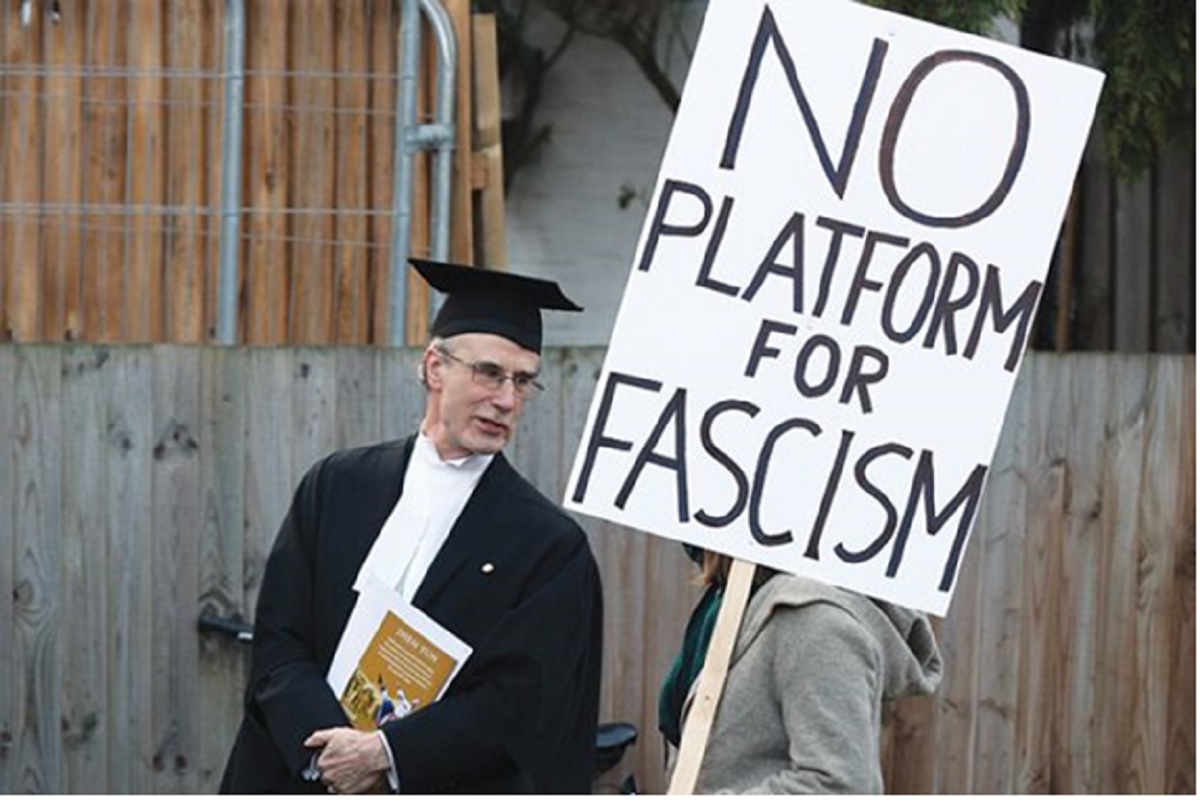

Dr. P J Vincent
The process of seeding communal thoughts through textbooks did not start recently. This project started in the early 1950s itself. In Gorakhpur, RSS founded a parallel school in 1952 to initiate this process. As a continuation, a chain of schools under the name “Saraswathi Shishumandir” was started in 1977 by “Vidyabharathi”. The History textbooks published by ‘Saraswati Sishumandir Prakashan’ for classes 4 and 5 say that Qutub Minar was built by Samudragupta and that the freedom struggle was a religious war. The book also said that Ashoka’s non-violence created cowardice among Hindus and described Gandhiji as an evil spirit for not making India a Hindu Rashtra after partition. By doing all these, they were able to indoctrinate the children of these schools at the primary level with ‘Hindu consciousness’.
In 1998, The Vajpayee government introduced the National Curriculum Framework (NCF) and made fabricated history as part of the textbooks in parallel and private educational institutions. These became part of the national policy. NCF 1972 and NCF 1986 provided prominence to topics like democratic values, social justice, and national integration. Through these, emphasis was given to national integration by highlighting and nurturing the common elements of different ideologies. However, NCF-2000 projected the tradition of religious ideology of ancient India (Hindu India) and clarified that efforts should be made to develop patriotism and nationalism by imparting the religious and philosophical tradition to the new generation. Vedic/Hindu tradition was appropriated to promote the value systems of Hindutva as part of this framework. The textbooks prepared by NCERT included falsehoods like Taj Mahal, Lal Kila (Red Fort) and Delhi Juma Masjid were built by Hindu rulers. This process was accelerated after 2014 and became the mainstay of the framework.
Hindutva values are included in NEP-2020 in the name of ‘Moral studies’. The moral studies syllabus for class 6th to 8th is prepared based on the culture and tradition of ancient India and states its commitment to promote the Gurukul method of the Vedic period. (P.98, 4, 6, 8). Yoga, Vaastu, Astrology, Vedic Math etc. are recommended to be included as core subjects. In short, value education has been shifted from constitutional values to Hindutva values. Through this, institutionalized caste consciousness (Institutional communalism) has become reality. Distorted history included in the history textbooks is a challenge for secular India.
Textbooks prepared by NCERT for classes 6th to 12th removed Mughal history and other key aspects like Democracy, Plurality, Popular uprisings, Dalit issues, Citizenship rights, and the politics of post-independence India. Role of RSS in the assassination of Gandhi, Gandhiji’s efforts for Hindu-Muslim unity and historical facts such as anti-Gandhi sentiments of Hindutva elements are completely removed from the political studies textbooks of the 12th standard. The Mughal period, Dalit liberation, Ashoka’s non-violence, Nehru’s observation on the Bhakhranangal Dam etc. has also been removed. This surgical strike in textbooks is Talibanization of Education. The next target will be the constitution. By removing socialism and secularism and defining India as a Hindu state, Hindutva forces are trying to make ‘constitutional communalism’ a reality.
Through the Ram Janmabhoomi – Babri Masjid agitation during the ‘80s, the Hindutva political forces managed to popularize communal historical awareness. This was made possible by conflating manufactured myths and legends with history and creating a distorted version of popular history. Subsequently once the N. D. A. alliance came to power, this distorted version of history was popularized through bodies like Indian Council of Historical Research (ICHR), NCERT, NCF, and textbook committees. Thus, the foundation of institutionalized communal consciousness was laid. Currently ‘Hindutva historical consciousness’ has been institutionalized as natural history and the historical truth.
The country is moving from popular communalism to institutionalized communalism and further to constitutional communalism. In this context, it is of utmost importance to protect the Constitution and its great popular values to preserve the secular, socialist republic of India. Protection of the constitution has become a progressive political imperative in the present Indian context.
——–
Dr. P J Vincent
Dr. P.J. Vincent is Head of Post Graduate Department of History at Government Arts & Science College, Calicut, Kerala. He worked on Deputation as Press Secretary to Hon’ble Speaker of Kerala State Legislature Assembly. He has written extensively in English and Malayalam and his major books are A History of Kunnummal Village, Adhinivesathinte Asurakandam and Adhinivesam Prathirodham (both in Malayalam), K.M. Panikkar: Charithramenna Porkkalam (edited) India -West Asia Relations : Understanding Cultural Interplays (Co Edited), Local History : Explorations in Theory and Method (Co-edited). He was the editor of the Government Arts & Science College Research Journal. Dr. Vincent has 20 Research papers and more than 250 popular articles (in English and Malayalam) at his credit. He is presenting Lokakkazhcha – a weekly news based programme on global politics – at the Kairali News Channel.

